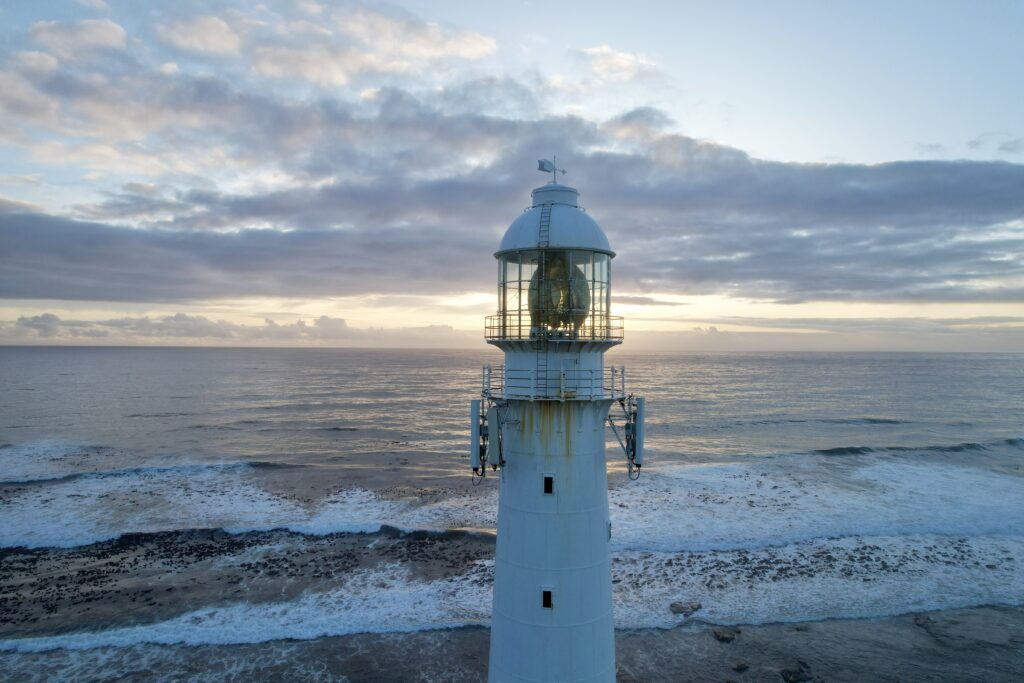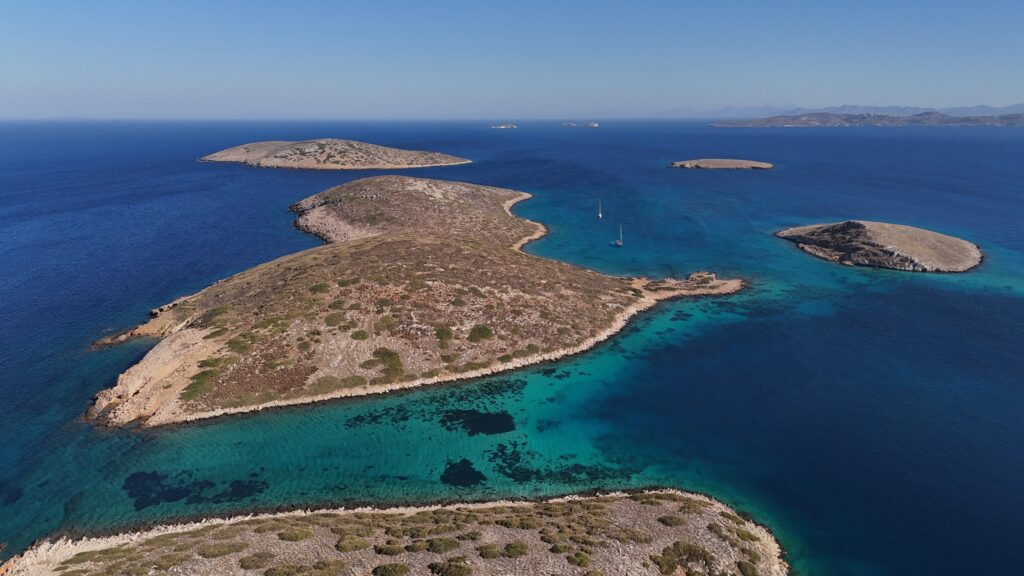Local SEO Guide for Marine Businesses

You’ve got the boats. The gear. The experience.
Your dive center is dialled in. Your surf school runs like clockwork. Your yacht charter service delivers memories people talk about for years.
But here’s the thing… if someone in your area searches “surf lessons near me” or “boat tour [your city]” and your business doesn’t show up, you might as well be invisible.
That’s where local SEO comes in. Local SEO for tourism businesses is essential if you want your dive center, surf school, or boat charter to be found by customers nearby. Without it, even the best experiences remain invisible
And no, it’s not just another buzzword.
⚓ Why local SEO matters for marine businesses
Think about how people book water experiences these days.
They’re on holiday. They pull out their phone. They type “surf camp in Sagres” or “sailing lessons Cascais” into Google. And within seconds, they’re looking at a shortlist of businesses.
If you’re not on that list, you don’t exist.
About 46% of all Google searches have local intent. That means nearly half of people searching are looking for something nearby. And when it comes to tourism and water activities, that percentage is likely even higher.
Most searchers never scroll past the first few results. The top three spots in Google’s local pack (that map section with three businesses) capture the majority of clicks. Being in that pack doesn’t just get you visibility. It gets you bookings.
So whether you run a boat charter in Lisbon, a kitesurfing school in Tarifa, or a dive center in the Azores, local SEO isn’t optional anymore.
⚓ The foundation: Google Business Profile optimisation
If there’s one thing you do after reading this, make it this: claim and optimize your Google Business Profile.
Your GBP is the single most important factor in local search rankings. It’s what appears in Google Maps. It’s what shows up in that local 3-pack. And it’s often the first impression potential customers get of your business.
Complete every section
Google rewards businesses that fill out their profiles completely. That means business name, address, phone number, website, hours, category, services, and description. Don’t skip the extras either. Add attributes like “wheelchair accessible” or “beginner-friendly.”
Use high-quality photos (and lots of them)
This one’s huge for ocean businesses.
Your potential customers want to see the boat they’ll be on. The dive site they’ll explore. The instructor who’ll teach them.
Upload photos of your vessels, equipment, team, happy customers, and the locations you operate in. Google loves fresh content, so add new photos regularly. Even better, encourage customers to upload photos when they leave reviews.
For businesses looking to make a real visual impact, our content creation services bring your marine experiences to life online.
Choose the right categories
Your primary category is critical. For a surf school, “surf school” is obvious. But add secondary categories like “sports school” or “tour operator” if they apply.
Be specific. “boat charter service” is better than just “tour agency.” The more precise you are, the better Google can match you with the right searches.
Keep your business information consistent everywhere
If your website says “Lisbon yacht charters” but your Google profile says “Lisbon yacht Charter Services”, Google gets confused.
Make sure your business information is identical across your website, Google Business Profile, social media accounts, and any directory listings. Inconsistencies hurt your rankings.
⚓ Reviews: the trust signal that actually moves the needle
Here’s a truth about marine businesses: trust is everything.
People are handing you their safety, their money, and their holiday memories. They’re looking for proof that you’ll deliver.
Google prioritizes businesses with recent, positive reviews. A business with 50+ 4 and 5 star reviews will always outperform a competitor with ten reviews, even if the competitor has perfect scores.
Ask at the right moment
Don’t wait days to ask for a review. Ask when the experience is fresh and the customer is still buzzing. Send a follow-up message with a direct link to your Google review page. The fewer clicks, the better.
Respond to every review
Google notices when businesses engage with reviews. When you get a positive review, respond with gratitude. When you get a negative review, respond professionally. Acknowledge the issue. Offer to make it right.
Don’t fake it
Don’t buy reviews or ask friends and family to leave glowing feedback. Google’s getting smarter at detecting fake reviews, and the penalties aren’t worth it.
⚓ Website optimization: making your site work for local searches
Your Google Business Profile gets people to your door. But your website is what seals the deal.
Use location-specific keywords naturally
Keywords like “boat charter Lagos”, “surf lessons Ericeira” or “diving Madeira” need to appear on your site. Work them into your homepage, service pages, about page, blog posts, and image alt text. The key is natural language. Write for humans first, search engines second.
Create location pages if you serve multiple areas
If you operate in Lisbon, Cascais, and Sesimbra, each location should have its own page with unique content. Talk about what makes that location special. Include local landmarks and relevant keywords.
Make your site mobile-friendly
Most of your potential customers are searching on their phones. Test your site right now. Can you easily find the phone number, see services and prices, fill out a contact form, and navigate without zooming?
If not, it’s time to fix your mobile experience.
Complement your SEO efforts with a website built to convert—explore our web design services for tourism and ocean businesses.
⚓ Local link building: getting local websites to recommend you
Backlinks from local websites carry serious weight for local SEO.
Partner with complementary businesses
If you run a dive center, partner with nearby hotels, restaurants, or tour operators. Offer to feature them on your site in exchange for a link back.
Get listed in local directories
Tourism directories, chamber of commerce sites, and regional business listings all count as local citations. Focus on regional tourism websites, industry-specific directories, and local business directories.
Pitch local media
Got a unique story? Reach out to local news outlets, travel blogs, or lifestyle magazines. A single article can drive traffic, build credibility, and create a valuable backlink.
⚓ Content marketing: showing up where your customers are searching
Your potential customers aren’t just searching for “boat charter.” They’re also searching for “best snorkeling spots in [your area]” or “how to choose a surf school.”
If you create content that answers these questions, Google will start showing your business in those searches.
Start a blog
A blog lets you target local keywords naturally, answer customer questions, showcase expertise, and keep your website fresh. Even one quality post per month makes a difference.
Write about local experiences and tips
Share your insider knowledge. What are the best times to visit certain dive sites? What should first-timers expect on a yacht charter? This content attracts search traffic and positions you as the expert.
Use video content
If you’re creating video for social media, repurpose it for your website. Embed videos on your homepage, service pages, and blog posts. Google prioritizes pages with video content.
⚓ Common mistakes marine businesses make
Ignoring negative reviews: Always respond professionally.
Keyword stuffing: Write naturally, not for robots.
Neglecting mobile users: If your site doesn’t work on mobile, you’re losing bookings.
Setting up your GBP and forgetting about it: Regular updates signal that your business is active.
Not tracking results: Use Google Analytics and Google Business Profile insights to see what’s working.
⚓ Final thoughts: local SEO is a long game
(but it’s worth it)
Local SEO takes time. You won’t optimize your Google Business Profile today and see a flood of bookings tomorrow.
But here’s what makes it worth it…
Once your local SEO is dialled in, it keeps working for you. Organic traffic doesn’t stop when your ad budget runs out. Your Google ranking doesn’t disappear when you take a day off.
Start with the basics. Get your Google Business Profile locked in. Collect reviews. Optimize your website. Build local links. Create helpful content.
Do those things consistently, and you’ll start showing up where your customers are searching.
That’s the power of local SEO. Now go claim that spot in the local pack.
And of course, if you ever need help implementing these tips, please reach out and we’ll discuss how Wander Desk can assist you 🙂


